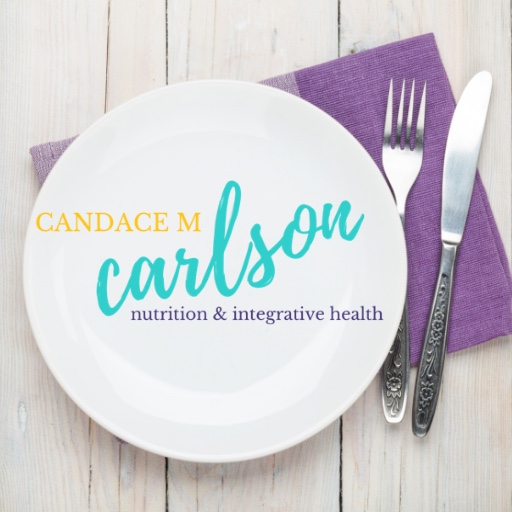Balancing hormones is complicated. But there are three areas you can focus on which can give you a good start and provide clues as to how much work you have to do.
Before I get into these tips, let me first share a quick story…
Melissa* came to me with issues regarding her cycle. She felt her mood was changing weekly, she was getting hot flashes and was quick to anger. She worked in a fast-paced industry that kept her on her feet but didn’t give her much time to tend to her health needs. She was constantly chasing her blood sugar and felt exhausted by early afternoon—so of course, she was hitting the caffeine!
The first area we started with was her food choices. We mapped out meals that would support and sustain her long enough to stabilize her blood sugar. These included high protein and healthy fat snacks that did double duty, meaning, they’re both hormone helpers and added nutrient density. I suggested experimenting with water and a quick 10-minute walk outside in the early afternoon to replace the caffeine. She quickly became more energized and didn’t hit the afternoon slump.
Next, we focused on supporting her liver. She had a history of heavy drinking on the weekends as a way to reduce stress. The anger and irregularity of mood she was feeling could be helped by including more liver-loving foods, backing off the alcohol consumption, and finding new ways to release her stress.
Last, we included a Schisandra Berry supplement to assist in liver function and detox as well as, Vitex AKA Chaste Berry to help with the hot flashes. This is the email I received from her:
“I don’t know if I just had a good month or what but I wasn’t hormonal and emotional!!! I love the recipes you sent me and I am definitely more mindful of eating clean all day and not just in the morning. I think those supplements really helped too! Thank you so much.”
You too can have these changes! Either book a Free 30 Minute Call with me or if you’re more of a DIY gal, start implementing these tips below:
Tip #1 Lower Stress
When we’re stressed, the adrenals work overtime to protect us from what they consider physical stress (even though we’re not really in danger). This is our fight or flight response. It causes the adrenals to produce higher levels of adrenaline and cortisol.
Because we can only produce adrenaline for a few seconds, our fight or flight response is dependent on excess cortisol, and this is where the havoc begins. Excess cortisol has been linked to:
- depression
- blood sugar problems
- reproductive issues
- anxiety
- weight gain around the middle
The key is to support the health of the adrenals with foods rich in B vitamins (greens), vitamin C (citrus, kiwi), and potassium (avocados, winter squashes). Practicing meditation or deep breathing greatly helps lower cortisol.
Tip #2 Support Your Liver
Excess hormones like cortisol, estrogen, and testosterone all need to be detoxed out of the body. This is a key process the liver performs to make sure we don’t suffer from excess hormones. Supporting the health of the liver, therefore, is critical.
A Milk Thistle or Schisandra Berry supplement helps the liver function more optimally. Cruciferous vegetables such as broccoli, kale, and dandelion greens, or apples, citrus, garlic, onions, Jerusalem artichokes, and berries are just a few liver-loving foods.
We also need good gut health to help make sure the toxins leave the body so supporting gut health is also important. This is easier said than done but it starts with good digestion.
Then adding probiotics and fermented foods such as kefir, yogurt, kimchi, or sauerkraut. Prebiotic foods such as garlic, onions, potatoes, wheat, broccoli, berries, and apples, just to name a few, feed our good bacteria and help keep our gut healthy.
Tip #3 Balance Blood Sugar
Bad eating habits and stress can cause our blood sugar to swing up and down throughout the day. When our blood sugar drops, we can experience:
- anger
- fatigue
- weakness
- depression
Normally, we then receive a signal to do something such as a sugar craving or a desire for a coffee or a beer. If we respond to the craving and consume something, this will bring our blood sugar back up. Caffeine, sugar, and alcohol all cause the blood sugar to swing up high. This causes a high insulin release. And too much insulin can affect other hormones.
If we do not respond to the craving, then our adrenals send a signal to tell the liver to release stored glucose and bring up blood sugar. Again, it tends to be a lot of glucose since adrenaline is a powerful hormone. Blood sugar swings high and again, large amounts of insulin are released.
To keep blood sugar stable, you need to eat small meals throughout the day with fiber and/or protein. Both will help slow down your digestion and keep you feeling full for longer than just a meal of simple carbs like a coffee. Blood sugar stabilizing foods such as Jerusalem artichokes, cinnamon and legumes can be very helpful. Lowering stress also helps keep blood sugar stable.
These are just three simple steps. Give them a try and see the difference they can make. If you find yourself with extra energy–tag me on Instagram @candacemcarlson and let me know what changes were the most beneficial for you. I’d love to cheer you on!

*name has been changed for privacy

